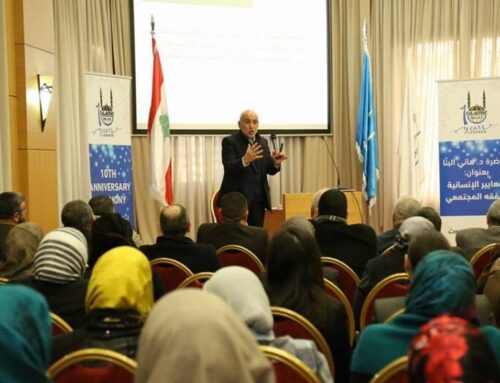Palestine Emergency and Reconstruction Conference is a 3 days virtual event. The conference will bring together multilaterals, UN agencies, INGOs and local NGOs to work together towards restoring hope and bringing a sense of normalcy to the Palestinian people in Palestine.
Palestine emergency and reconstruction conference will reflect comprehensive damage assessment that covers the most affected sectors, discuss reconstruction needs from implementing organizations viewpoint, and consideration of the destruction from the latest attack as well as unmet reconstruction needs 2008, 2014 and 2018. The conference will also highlight the multiple challenges including, protracted crises, COVID-19 and donor fatigue, and shed light on pledges (most up-to-date information) and pipeline projects for
supporting the worst affected sectors as well as opportunities, solutions and recommendations for reconstruction.
The event will consist of four main sessions:
1. Opening statements:
The hosts and main partners will open the event with opening statements to set the scene and introduce the structure of the conference.
2. Networking and collaboration (main sectors of focus):
The participants will go into break out rooms to discuss each of the themes suggested above.
3. Updates, feedback from sector specific workshops and announcements:
Updates of the challenges, projects and solutions for a more collaborative and long-lasting delivery of aid, assistance and support to the Palestinian people in Palestine.
Announcements of support and funding by participating delegates will form a major part of
this session.
4. Closing session:
This will include total pledges, key recommendations and closing remarks.
Programme
Day 1:
1. Opening speeches
2. Introduction: a short video with facts and figures showcasing a comprehensive damage assessment, which sectors and current efforts
3. Plenary session- Speakers/Panellists:
- Linking humanitarian, recovery and re-building resilience in Palestine (Lessons learned from three rounds of rebuilding)
- Lifesaving interventions and challenges of coordination, aid effectiveness and accountability
- Protection of the vulnerable civilians (Whose doing what, how and where?),
challenges and suggested solutions.
Working groups: Two parallel sessions each to run for max 2-3 hours in the following topics:
Facilitators: (to be confirmed later)
1. Health Sector
• Facts and figures (damage assessment results)
• Who’s doing what and where? (destruction from the recent attack & unmet
reconstruction needs from the wars 2008, 2012, and 2014)
• Current and Unmet needs & what we could learn
• Recommendations and pledges
2. Shelter Rebuilding
• Facts and figures (damage assessment results)
• Who’s doing what and where? (destruction from the recent attack & unmet
reconstruction needs from the wars 2008, 2012, and 2014)
• Current and Unmet needs & what we could learn?
• Recommendations and pledges
Day 2:
Facilitators: (to be confirmed later)
There will be 4 parallel sessions each to run for about 3 hours on the following topics:
1. Education
• Facts and figures (damage assessment results)
• Who’s doing what and where? (destruction from the recent attack & unmet
reconstruction needs from the wars 2008, 2012, and 2014)
• Current and Unmet needs & what we could learn
• Recommendations and pledges
2. Sustained Livelihood support
• Facts and figures (damage assessment results)
• Who’s doing what and where? (destruction from the recent attack & unmet
reconstruction needs from the wars 2008, 2012, and 2014)
• Current and Unmet needs & what we could learn?
• Recommendations and pledges
3. Psycho social support
• Facts and figures (damage assessment results)
• Who’s doing what and where? (destruction from the recent attack & unmet
reconstruction needs from the wars 2008, 2012, and 2014)
• Current and Unmet needs & what we could learn?
• Recommendations and pledges
4. Aid coordination
• Facts and figures (damage assessment results)
• Who’s doing what and where? (destruction from the recent attack & unmet
reconstruction needs from the wars 2008, 2012, and 2014)
• Current and Unmet needs & what we could learn?
• Recommendations and pledges
Day 3:
Facilitators: (to be confirmed later)
● Feedback from day 1 & 2
● Working groups+ presentation of findings
● Way forward and commitments, Wrap up discussion and recommendations
● Closing remarks
Speakers
Speakers will be announced soon
Join us for the Palestine Emergency and Reconstruction Conference:
Date: To be Confirmed
Time: 14:00 – 17:00 BST
Location: Online (Zoom)


